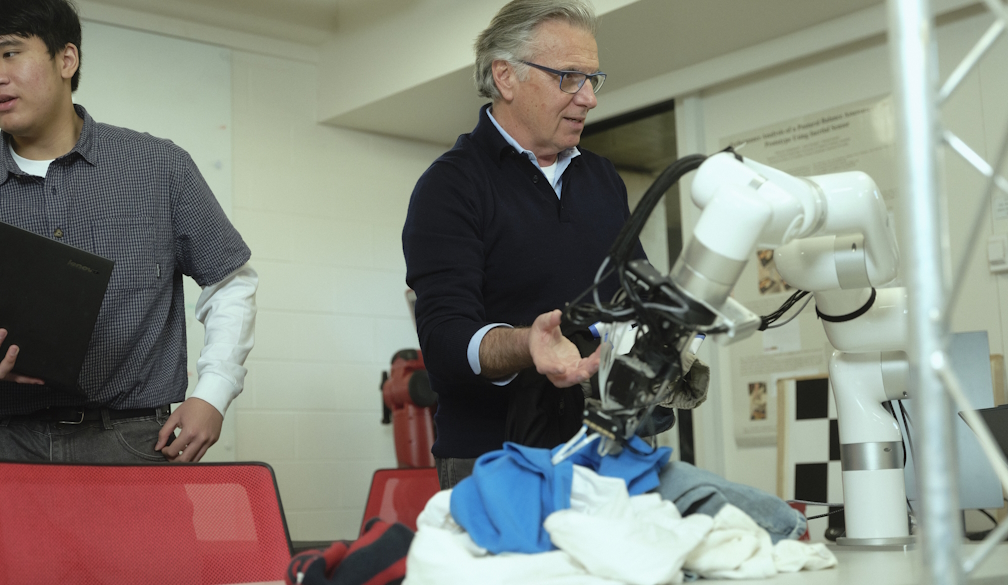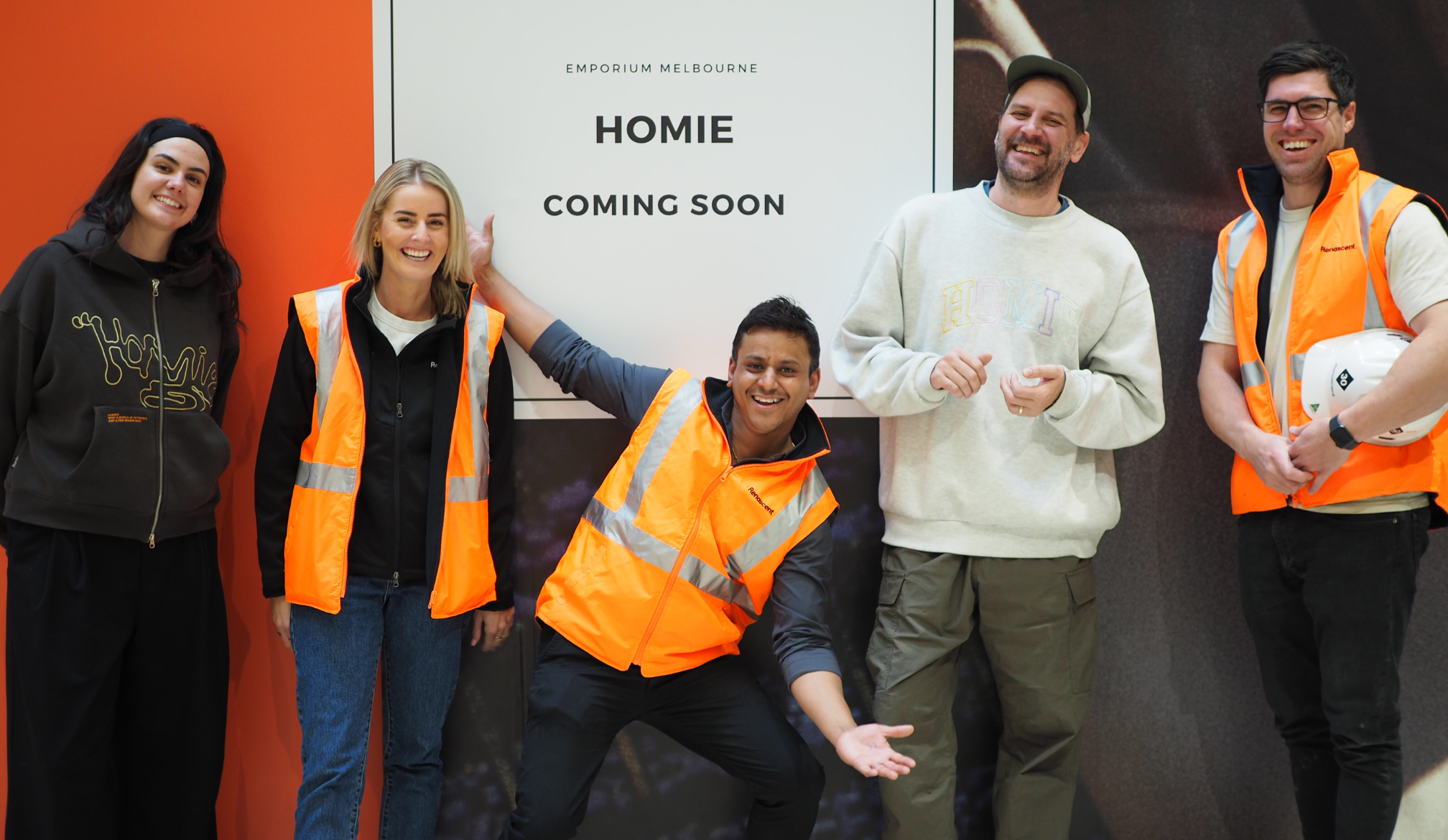Country Road announces 2024 grant recipients for Australia’s first fashion industry Climate Fund

On 3 October 2024, iconic Australian lifestyle brand Country Road proudly announced the grant recipients for the second year of its Climate Fund. This year, four pioneering projects have been selected to drive positive climate solutions within the fashion industry.
In 2022, Country Road announced Australia’s first fashion industry Climate Fund, pledging $1.5 million over three years in grant funding towards projects that drive positive climate solutions.
The Country Road Climate Fund’s primary mandate is to invest in projects with a positive climate impact that directly or indirectly reduce greenhouse gas emission in the fashion industry supply chain. The Fund recognises that climate outcomes can be achieved through nature-based, circular, First Nations-led and innovative solutions. Therefore, the Fund is also targeted at investing in projects which align with one or more of the following pillars: biodiversity, First Nations-led projects, circularity and innovation.
This year’s finalists were selected by an assessment committee comprising industry specialists across the four Climate Fund pillars. These were Yatu Widders Hunt, general manager Cox Inall Ridgeway; Dr. Carter Ingram, managing director Pollination; Fabia Pryor, brand sustainability manager Country Road and Aleasha McCallion, strategic projects manager Circular Economy Transitions and co-founder Circular Economy Textiles Program, Monash Sustainable Development Institute.
Speaking to her involvement on the assessment committee, Aleasha McCallion explains, ' Country Road’s Climate Fund is demonstrating leadership and a clear commitment to supporting—and importantly, directly funding—local grassroots community and industry collaborative projects which have impact. All of the Climate Fund recipients clearly reflect exceptional innovation and dedication to sustainable and circular solutions in Australia which connect our close relationship with fibre, textiles and fashion, back to the health and wellbeing of people and planet.’
Finalist: Sorting Textile Waste Robotically with RediRobots
PILLAR: CIRCULARITY / INNOVATION
FUNDING: $30K
According to Seamless, Australians throw away 200,000 tonnes of clothing every year, or 575 tonnes a day, contributing significantly to environmental damage. However, much of this clothing is highly recyclable. The
challenge is in efficiently sorting this textile waste, a task currently reliant on labour-intensive processes. RediRobots has developed technology to automate this process of sorting textile waste by colour and garment type. This pilot project, in collaboration with Textile Recyclers Australia and the University of Canberra, aims to make textile recycling more efficient. By automating sorting, RediRobots seeks to significantly reduce landfill contributions and CO2 emissions, turning waste into valuable resources and promoting sustainable practices in the fashion industry.
Finalist: Mimal Women Rangers
PILLAR: FIRST NATIONS
FUNDING: $51.4k
This project supports the Mimal Women Rangers and Elders in the Mimal Land Management area (Central Arnhem Land) and Wugularr/Beswick. Alongside their critical climate and conservation work, many of the women rangers and Elders are expert weavers and are culturally responsible for passing this traditional practice down to the younger generations. The project aims to enhance their relationship with the Djilpin Arts Centre by enabling access to different remote areas of Country. On these trips, the women and Elders will harvest pandanus and dyes for their weavings, and if necessary, also conduct cool burns to protect the land from wildfires. This initiative will also support traditional weaving practices, generating income for the women and preserving cultural heritage. Furthermore, many of these trips will also be built into the Learning on Country Program at the Bulman School, guaranteeing that the younger children have as much exposure to the complexity and value of the practice as possible, and fully understand how intimately the practice interacts with caring for Country.
Finalist: Surplus Guide by Circular Sourcing
PILLAR: CIRCULARITY
FUNDING: $139.7k
With an estimated 40,000 tonnes of surplus fabric going to waste every year in Australia, the Surplus Guide by Circular Sourcing aims to empower brands, designers, and manufacturers to divert their surplus fabrics back into the industry. Circular Sourcing, a digital platform for re-circulating (sourcing and selling) quality surplus materials, will create a comprehensive designer toolkit validated through research and published open-source for industry wide benefit. Developed by Courtney Holm of A.BCH, Circular Sourcing diverted over 5 tonnes of textiles in a 12- week pilot and now, with the Country Road Climate Fund, the project aims to divert a further 238 tonnes of textiles from landfill and into the hands of small businesses, reframing “deadstock” as a valuable ecological choice.
Finalist: Improving Biodiversity on Tasmanian Merino Wool Farms by Greening Australia PILLAR: BIODIVERSITY
FUNDING: 200K
Located in eastern Tasmania, the Midlands is one of Australia’s 15 biodiversity hotspots—an area with a high number of native species that are facing habitat loss. Renowned for its wool production, the area is mostly made up of grassland, however it has been heavily grazed and cleared of native habitat for agricultural purposes whilst also experiencing frequent and severe droughts due to climate change. In partnership with a Merino wool farming family in the Tasmanian Midlands, this project will establish 30,000 native plants, restoring hectares of native, biodiverse vegetation. This planting will create windbreaks and corridors of vegetation to connect fragmented native habitats and allow isolated populations of threatened wildlife to interact, improving genetic diversity and boosting their ability to adapt in the face of climate change. With in-kind support by Australian Wool Innovation, the project not only helps to enhance climate resilient landscapes but also demonstrates what the power of collaboration and partnership can achieve for both people and nature.























